Spain is a very idiosyncratic country and there are plenty of jobs to match, especially when it comes to its famed gastronomy and culture.
While some of the jobs on our list are not to everyone's taste (some may not be completely unique to Spain either), they will certainly inspire you to think laterally about your career options in España.
Ham slicer
There is a special place in every Spaniard's heart for jamón serrano and ibérico. Indeed this delicious cured meat is such serious business here that having a top notch cortador, or professional cutter, is an honour that every quality Spanish restaurant aspires to. Regular competitions are held, in which speed and slice thinness are put to the test. Cortadores can expect to earn anywhere between €1,000 and €2,000 depending on experience.
Bull scout
Loved by some, loathed by others, bullfighting is a long-held tradition in Spain that thrives on the crowds who come to watch a spectacle involving a burly, half-tonne beast whose upkeep is costly and whose lifespan is limited. Bull scouts are among the many hidden professionals in bullfighting. These veedores (talent scouts) make a good living by simply choosing which fighting bulls should face the toreros in the ring. Another perk of the job is that it only involves working for the six months that the bullfighting seasons lasts.
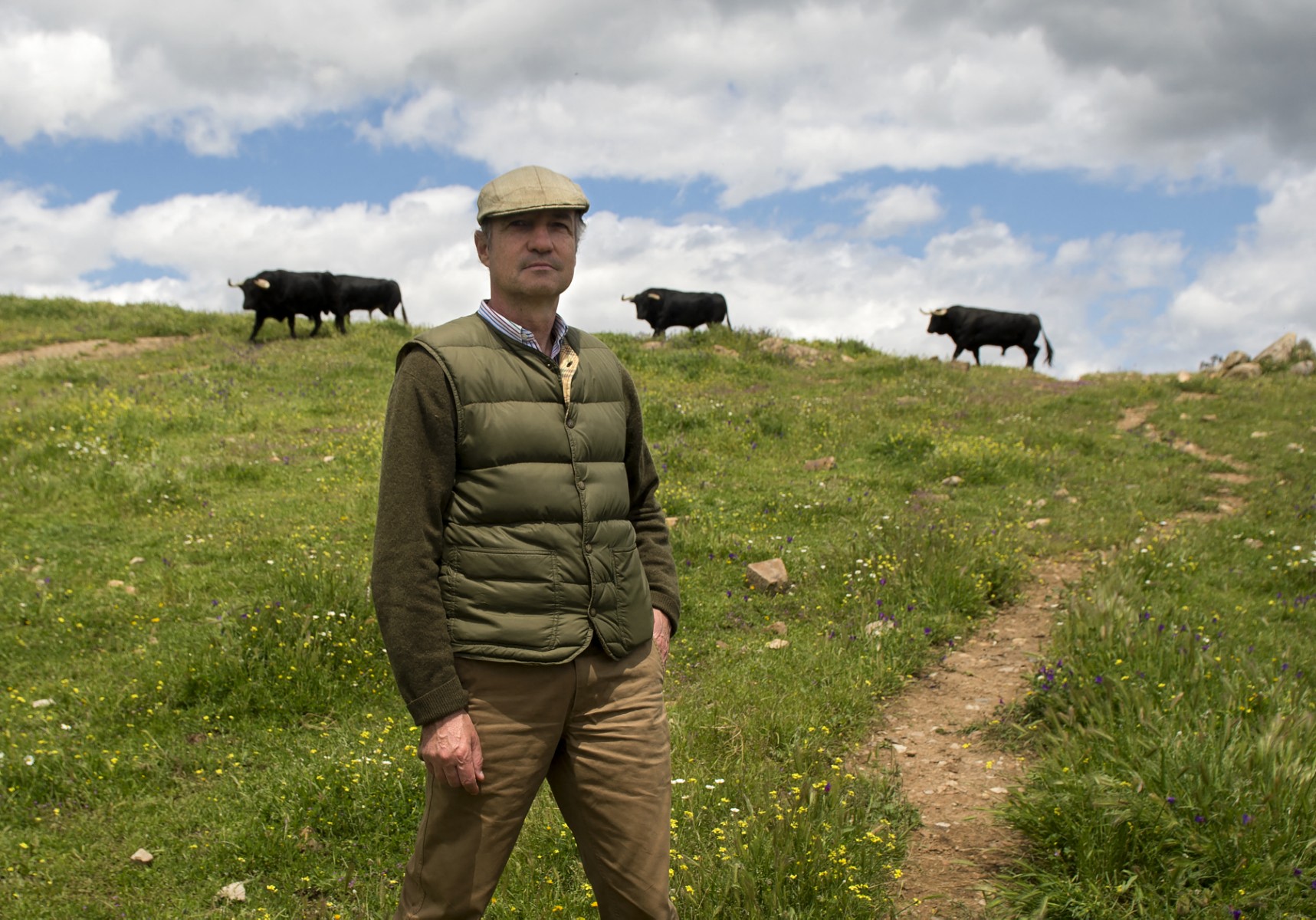 For some this occupation is a load of bull, but it certainly is quintessentially Spanish. (Photo by CRISTINA QUICLER / AFP)
For some this occupation is a load of bull, but it certainly is quintessentially Spanish. (Photo by CRISTINA QUICLER / AFP)
Churro maker
If you've been to Spain, you've probably tried churros. These long fried-dough pastries sprinkled with sugar and dipped in hot chocolate are, quite frankly, awesome. You won't have to look around for too long before stumbling upon a churrería. Once there, you'll find the churreros, the people who fry the tasty snacks and give them their elongated shape. Madrid’s iconic Chololatería San Ginés is so popular with tourists the owners even set up new branches in Tokyo, Bogotá, Shanghai, Mexico City and next in is Miami.
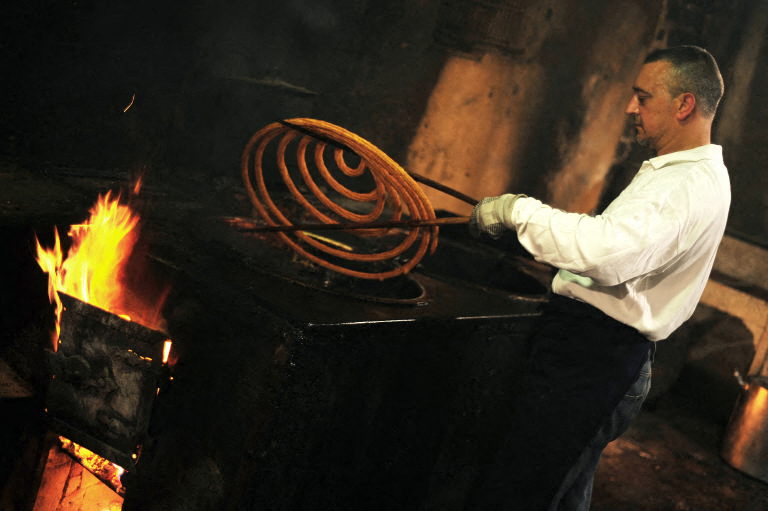 Expect to pick up a few kilos if you're working with churros and chocolate all day. (Photo by RAFA RIVAS / AFP)
Expect to pick up a few kilos if you're working with churros and chocolate all day. (Photo by RAFA RIVAS / AFP)
Feria dressmaker
The ferias, or fairs, of Spain may look like a lot of people having a whale of a time but there's some serious business going on as well. Spaniards fork out big money on traditional costumes to look their best at these events and there is more than enough demand to keep the top class makers of flamenca dresses in work all year around. A dressmaker for Spain's Feria de Abril can expect to sell a traje de flamenca for at least €600.
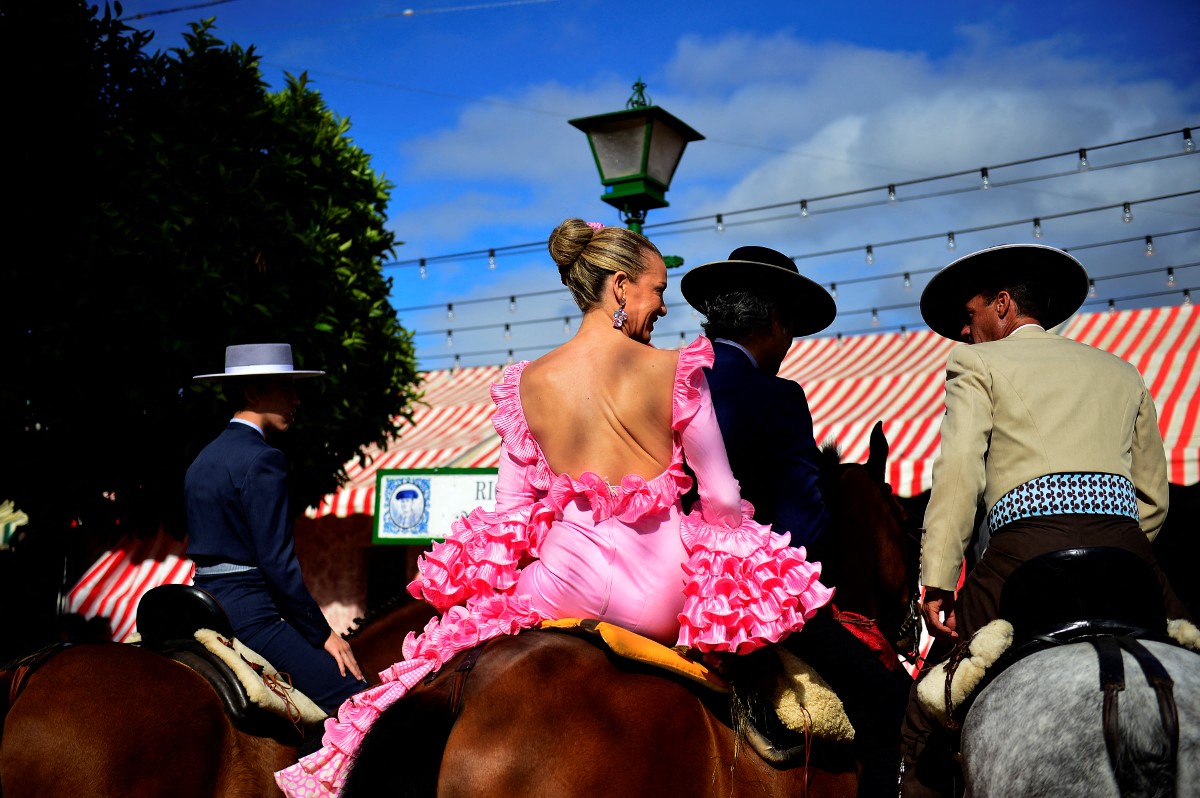 Designers will need to add plenty of flair to Seville' April fair dresses. (Photo by CRISTINA QUICLER / AFP)
Designers will need to add plenty of flair to Seville' April fair dresses. (Photo by CRISTINA QUICLER / AFP)
Sherry educator
Learning how to make your own wine may be an option in other parts of the world, but there’s only one place to get properly qualified in the sherry business: Jerez. Head to the Andalusian town where this fortified wine is originally from and get taught by official sherry educators.
You could also consider becoming a master venenciador (master sommelier of Spanish white wine sherry) so that you can show off your wine-pouring skills at parties.
 Expect plenty of pouring but little drinking on the job as a sherry connoisseur. (Photo by YOSHIKAZU TSUNO / AFP)
Expect plenty of pouring but little drinking on the job as a sherry connoisseur. (Photo by YOSHIKAZU TSUNO / AFP)
Goose barnacle fisher
Percebeiros, who mainly hail from Galicia's rugged coastal towns and villages, have arguably one of the most dangerous jobs in Spain.
Percebes (goose barnacles) may be odd-looking crustaceans but they're considered a delicacy that sells for around €60 a kilo at Christmas.
That explains why Galician men and women are willing to forage for percebes as they clamber over slippery rocks while waves crash into them. It's certainly not a job for the faint of heart.
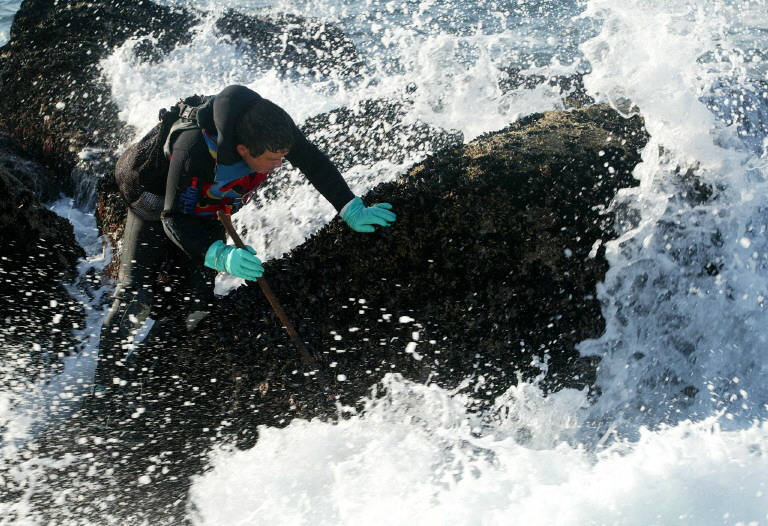 The stakes are high for percerbeiros. (Photo by MIGUEL RIOPA / AFP)
The stakes are high for percerbeiros. (Photo by MIGUEL RIOPA / AFP)
Fallas designer
Can you believe that there's an official vocational training course focused on Fallas design and building on the Spanish government website? For those not in the know, the Fallas are the name that Valencia's most iconic festival goes by, which also refers to the giant and beautiful satirical effigies made out of polystyrene, cardboard or wood. All of them except the winner are set alight after weeks if not months of work. Is this the perfect job for perfectionist sculptors and artists?
 Falla designers get to poke fun at the powerful, as seen with this one depicting Russian President Vladimir Putin next to North Korea's leader Kim Jong-un. Photo: José Jordan/AFP
Falla designers get to poke fun at the powerful, as seen with this one depicting Russian President Vladimir Putin next to North Korea's leader Kim Jong-un. Photo: José Jordan/AFP
Almadraba fisher
Almadraba is an ancient way of trapping and catching Atlantic bluefin tuna which was created by the Phoenicians and then perfected by the Moors during their conquest of Spain. It survives only in Murcia and parts of the southern Andalusian coast (as well as in pockets of Portugal and Morocco). Net barriers are set up to guide and trap tuna migrating from the Atlantic to the Mediterranean. it's hard work and very seasonal, but there are attempts to keep almadraba alive by the Spanish government, which is planning to give it 'cultural interest' status.
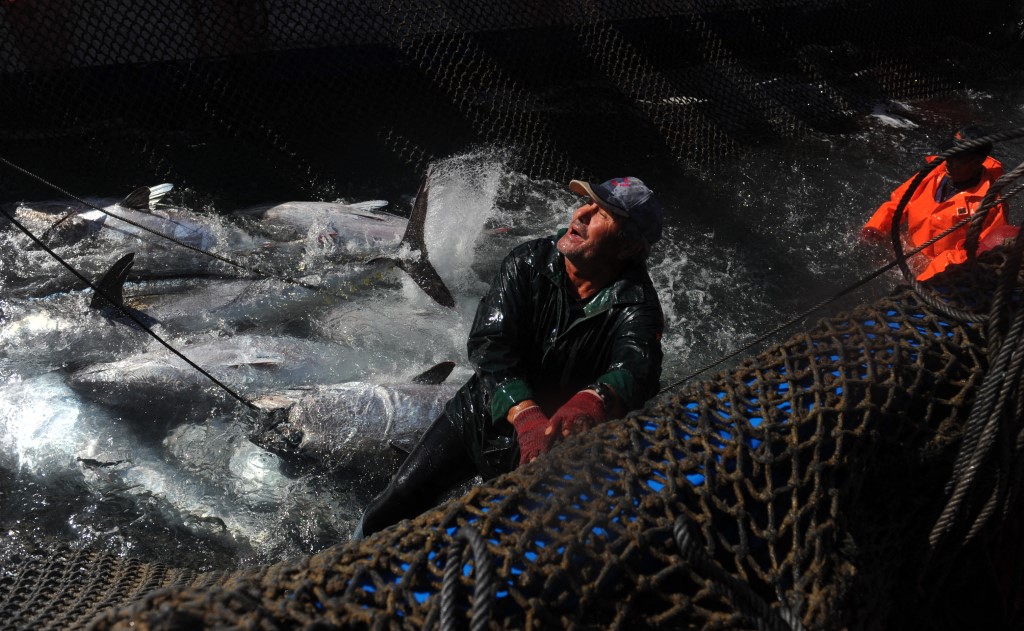 A fisherman hauls out tuna during the Almadraba in Barbate, southern Spain. (Photo by CRISTINA QUICLER / AFP)
A fisherman hauls out tuna during the Almadraba in Barbate, southern Spain. (Photo by CRISTINA QUICLER / AFP)
Octopus chef
Another seafood occupation from Galicia, pulpeiros and pulpeiras are the people who truly know how to prepare the delicious pulpo a feira dish (boiled in traditional copper pans and cut up into bite-sized pieces and seasoned with olive oil and paprika), from knowing how to 'scare' it (the process of dipping the octopus for a few seconds in order for its tentacles to curl) to how long to boil it, fry it or season it.
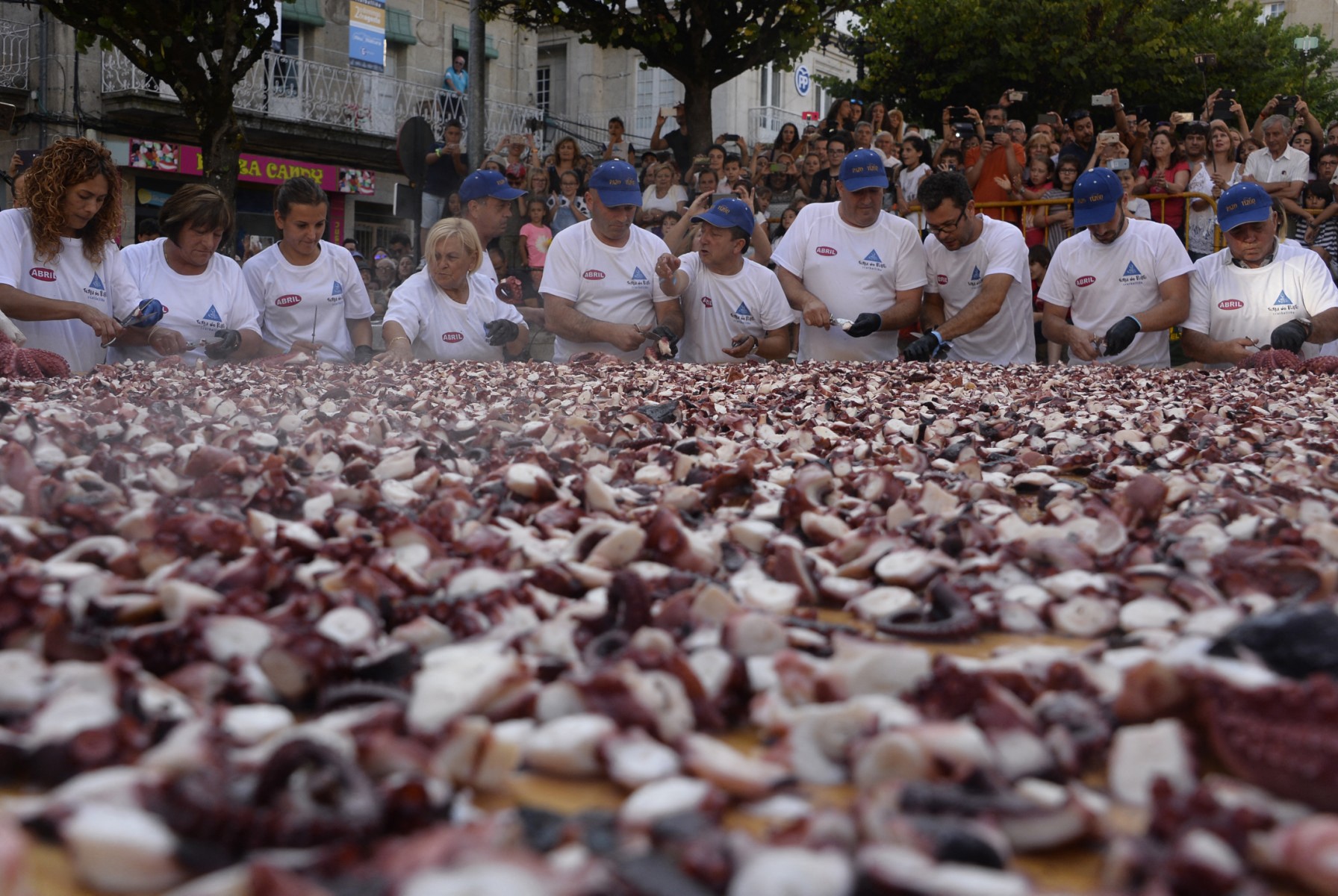 "Pulpeiros" (octopus' cooks) prepare the world's biggest octopus tapa (snack) cooked in Carballino, on August 7, 2018. (Photo by MIGUEL RIOPA / AFP)
"Pulpeiros" (octopus' cooks) prepare the world's biggest octopus tapa (snack) cooked in Carballino, on August 7, 2018. (Photo by MIGUEL RIOPA / AFP)
Roaming knife sharpener
A dying profession that's been around for centuries, afiladores can be heard approaching from far away because of the high-pitched whistle that they blow to let people that they can have their blunt knives sharpened on the spot. In cities like Seville they sing 'El Afilaaao' over and over again. These roaming metalworkers carry their tools and the buffing wheel on the back of mopeds or bicycles.
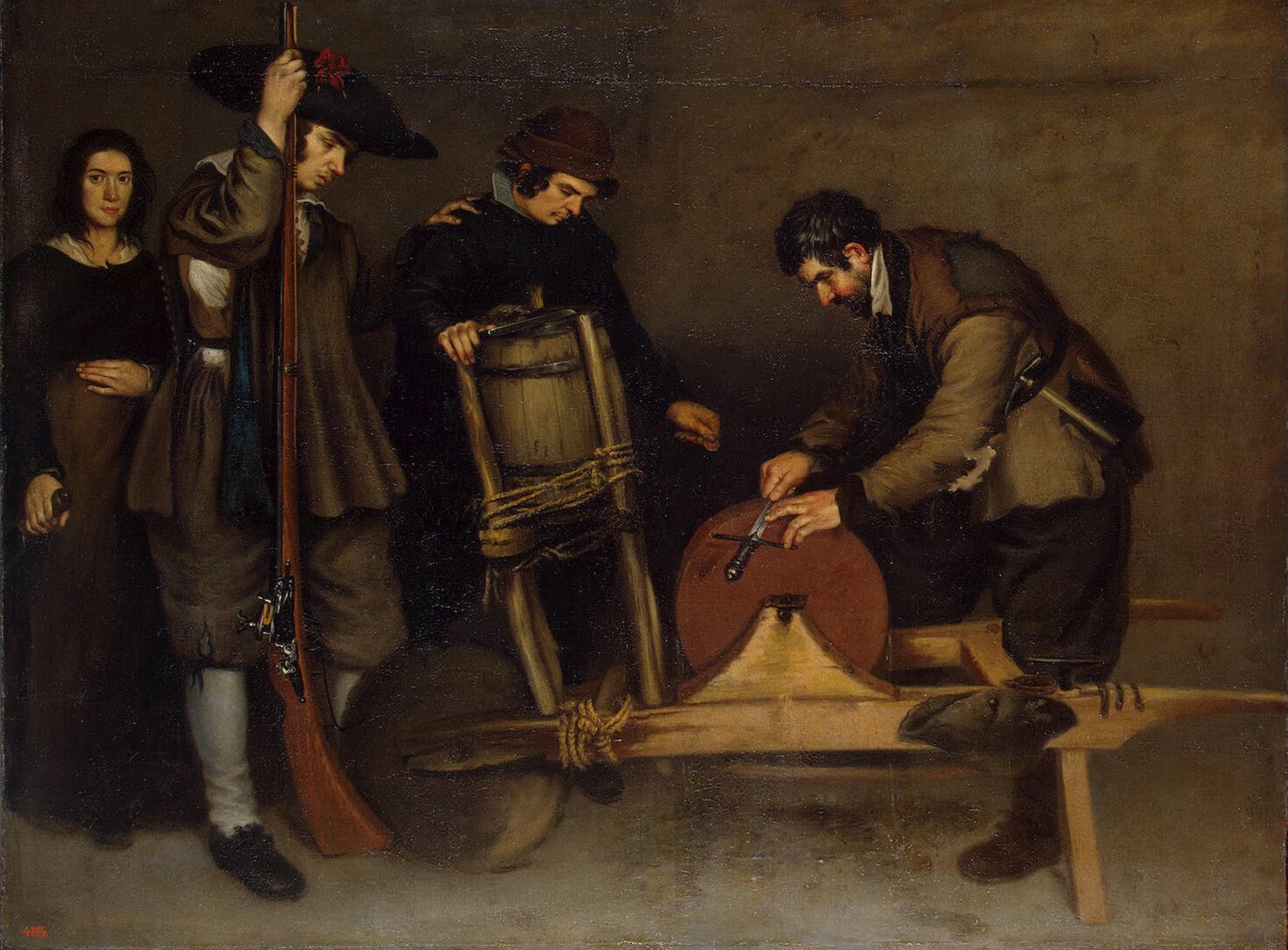 Painting by Baroque artist Antonio de Puga circa 1640, depicting a Spanish knife sharpener with all his gear on a wheelbarrow. Image: Wikipedia/Public Domain
Painting by Baroque artist Antonio de Puga circa 1640, depicting a Spanish knife sharpener with all his gear on a wheelbarrow. Image: Wikipedia/Public Domain.
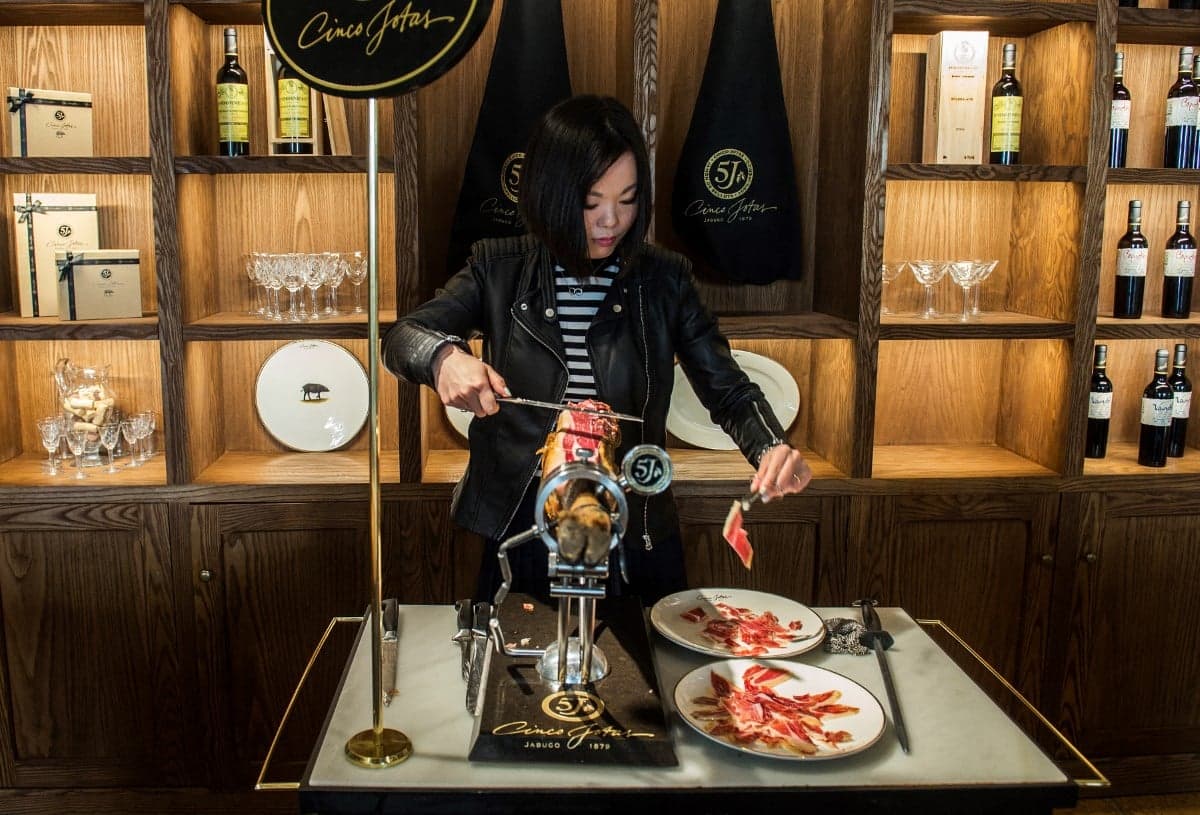
Join the conversation in our comments section below. Share your own views and experience and if you have a question or suggestion for our journalists then email us at [email protected].
Please keep comments civil, constructive and on topic – and make sure to read our terms of use before getting involved.
Please log in here to leave a comment.